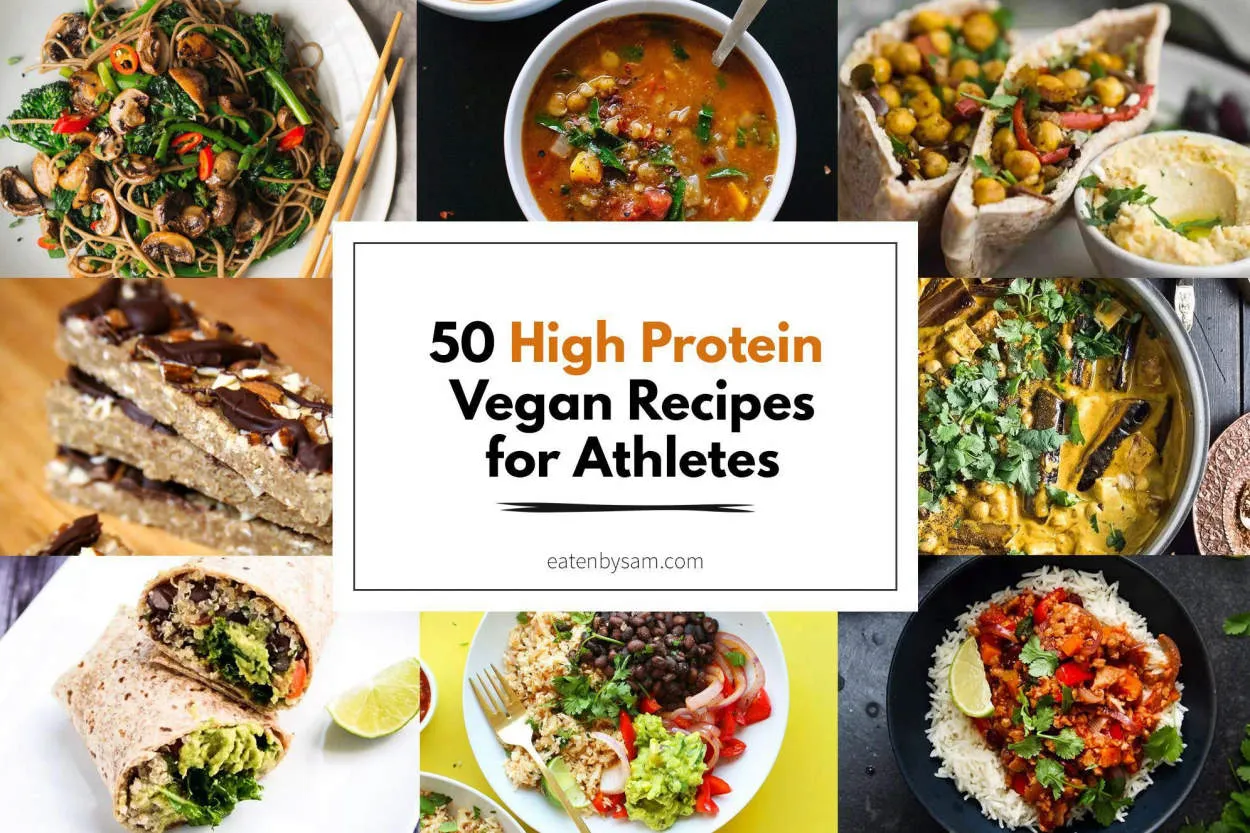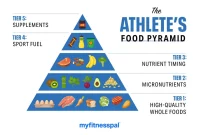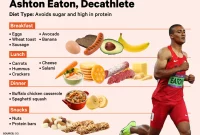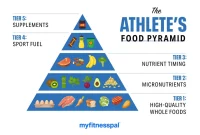Athlete-focused nutrition plays a crucial role in their success. Knowing what to eat is essential to fuel performance, enhance recovery, and promote overall well-being. In this article, we will guide you on the key elements of a balanced diet for athletes to optimize their training and achieve their goals.
Tailoring Diets for Different Sports
Athlete-Focused Nutrition: What to Eat for Success
Achieving peak performance in sports requires not only physical training but also an appropriate diet. Different sports have varying demands on the body, making it essential to tailor nutrition plans to specific athletic activities. Here are some key considerations when it comes to athlete-focused nutrition:
Sport-Specific Energy Needs
Each sport places distinct energy demands on athletes. Endurance athletes, such as marathon runners or cyclists, require high levels of carbohydrates for sustained energy. Power athletes like weightlifters and sprinters benefit from diets with a focus on protein for muscle repair and growth.
Timing and Composition
The timing and composition of meals are critical for optimal performance. Prioritize pre-event meals that are high in carbohydrates and easy to digest to fuel the body. Post-exercise meals should include a combination of carbohydrates and protein to aid in recovery and replenish energy stores.
Hydration
Staying properly hydrated is a vital aspect of athlete nutrition. Athletes need to pay attention to their fluid intake before, during, and after their activities. Water and sports drinks should be consumed to replace fluids lost through sweat and maintain optimal performance.
Supplements
While a well-balanced diet should be the foundation, some athletes may benefit from supplements. However, it’s important to consult with a sports nutritionist or healthcare professional before incorporating supplements into your diet, as they are not a substitute for good eating habits.
Individual Considerations
No two athletes are the same, and individual differences must be taken into account when designing nutrition plans. Factors such as body composition, gender, age, and personal preferences should all be considered to create customized dietary recommendations.
By tailoring diets to specific sports, athletes can optimize their performance and enhance recovery. Remember, achieving success in sports is not only about training hard but also fueling the body with the right nutrients.
The Science of Meal Timing
Meal timing plays a crucial role in optimizing athlete-focused nutrition for success. Understanding the science behind when to eat can enhance performance, aid recovery, and support overall goals.
Eating Before Exercise
Consuming a balanced meal containing carbohydrates, protein, and healthy fats approximately 2-3 hours before exercise provides the necessary fuel for optimal performance. This timing allows for digestion and absorption, avoiding discomfort during physical activity.
Fueling During Exercise
For prolonged workouts or intense training sessions lasting more than one hour, it is essential to refuel with easily digestible carbohydrates. This can be done by consuming energy gels, sports drinks, or small snacks to maintain blood sugar levels and sustain energy levels.
Recovery Nutrition
Immediately after exercise, focus on replenishing glycogen stores and repairing muscle tissue. Consuming a combination of carbohydrates and protein within 30 minutes to an hour after the workout helps enhance recovery and rebuild muscles.
Bedtime Fuel
Even during sleep, nutrition plays a role in athletic success. Consuming a light snack with a source of protein before bedtime can promote muscle protein synthesis and support muscle recovery throughout the night.
Consistency is Key
While meal timing is important, maintaining a consistent eating schedule is equally crucial. Regularly spaced meals and snacks throughout the day ensure a steady supply of nutrients, support energy levels, and optimize performance.
By understanding the science of meal timing and applying it to athlete-focused nutrition, individuals can unlock their full potential and achieve success in their athletic endeavors.
Nutritional Needs During Training Seasons
Achieving success as an athlete goes beyond just physical training; nutrition plays a vital role in optimizing performance. During training seasons, athletes must pay close attention to their dietary needs to ensure they are fueled properly for peak performance.
First and foremost, athletes should focus on consuming an adequate amount of calories to meet the energy demands of their training. This can vary depending on the individual’s sport, body composition, and training intensity. Consulting with a sports nutritionist can help determine the appropriate calorie intake for specific athletes.
Carbohydrates are essential for replenishing glycogen stores and providing a readily available source of energy. Athletes should aim to include whole grains, fruits, and vegetables in their diet to ensure they are getting an adequate amount of carbohydrates.
Protein is crucial for repairing and rebuilding muscles after intense training sessions. Athletes should include lean sources of protein such as chicken, fish, eggs, and legumes in their meals. Protein supplements can also be considered, but it’s essential to consult with a professional to determine the appropriate amount.
Fat is another essential macronutrient that should not be neglected. Healthy fats, such as those found in nuts, avocados, and olive oil, provide necessary energy and help with the absorption of fat-soluble vitamins. Including a moderate amount of healthy fats in the diet is beneficial for overall athletic performance.
Hydration is often underestimated but plays a crucial role in athletic performance. Athletes should aim to drink enough fluids throughout the day, especially during training sessions, to replace the water lost through sweat. Sports drinks can be beneficial for prolonged and intense workouts that exceed one hour.
In conclusion, an athlete-focused nutrition plan during training seasons should prioritize an adequate calorie intake, sufficient carbohydrates for energy, lean sources of protein for muscle repair, healthy fats for energy and nutrient absorption, and proper hydration. By addressing these nutritional needs, athletes can optimize their performance and increase their chances of success.
Addressing Common Dietary Challenges
When it comes to athlete-focused nutrition, there are common dietary challenges that need to be addressed to pave the way for success. Whether you are a professional athlete, a weekend warrior, or simply someone engaged in regular physical activity, optimizing your nutrition can enhance your performance, aid in recovery, and support overall health.
1. Balancing Macronutrients
One key challenge is achieving a balance of macronutrients – carbohydrates, proteins, and fats. Each macronutrient plays a unique role in the body and serves as a source of energy for athletic performance. For example, carbohydrates provide quick fuel for intense workouts, proteins support muscle repair and growth, and healthy fats offer long-lasting energy.
2. Meeting Energy Demands
Athletes often have higher energy demands due to increased physical activity levels. It is important to consume enough calories to meet these demands and prevent energy deficiencies. This can be achieved through a well-rounded diet that includes nutrient-dense foods such as whole grains, lean proteins, fruits, vegetables, and healthy fats.
3. Hydration
Proper hydration is crucial for athletes as even mild dehydration can negatively impact performance. It is essential to drink fluids before, during, and after workouts to maintain optimal hydration levels. Water is usually sufficient for shorter activities, while longer durations or intense workouts may require electrolyte replacement through sports drinks.
4. Timing and Meal Planning
Timing and meal planning are key factors in optimizing nutrition for athletes. Consuming a balanced meal or snack containing carbohydrates and proteins within 1-3 hours before exercise can provide the necessary energy, while consuming a combination of carbohydrates and proteins within 30 minutes to 1 hour after exercise aids in muscle recovery.
5. Individualized Approaches
Lastly, it is important to understand that every athlete is unique and may have different dietary needs and challenges. It is recommended to work with a sports nutritionist or dietitian to develop an individualized plan that takes into account personal factors such as body composition, goals, and specific sport requirements.
By addressing these common dietary challenges, athletes can optimize their nutrition and set themselves up for success in their athletic pursuits. Prioritizing a well-balanced diet, proper hydration, and personalized approaches can make a significant difference in performance, recovery, and overall well-being.
The Relationship Between Diet and Recovery
Proper nutrition plays a crucial role in an athlete’s ability to recover and achieve success. The food choices athletes make before, during, and after their workouts or competitions can significantly impact their overall performance and recovery time.
Firstly, consuming a balanced diet that includes all essential macronutrients (carbohydrates, protein, and fats) and micronutrients (vitamins and minerals) is vital for optimal recovery. Carbohydrates provide the primary source of energy for athletes, so they need to consume enough to fuel their workouts and replenish glycogen stores. High-quality protein helps repair damaged tissues and build new muscle, while healthy fats aid in hormone production and reduce inflammation.
In addition to macronutrients, athletes should also prioritize proper hydration. Dehydration can lead to decreased performance and hamper the recovery process. Drinking enough water and electrolyte-rich fluids is essential to maintain hydration levels during and after physical activity.
Furthermore, timing is crucial when it comes to eating for recovery. Consuming a combination of carbohydrates and protein within 30 minutes to an hour after exercise helps replenish glycogen stores and kickstarts the muscle repair process. Including a variety of fruits, vegetables, whole grains, lean meats, and dairy products in regular meals and snacks throughout the day provides the necessary nutrients for optimal recovery.
Lastly, paying attention to individual needs and preferences is key to designing an effective athlete-focused nutrition plan. While general guidelines exist, it’s important to consider factors such as dietary restrictions, training intensity, and personal goals. Consulting with a qualified sports nutritionist can help athletes tailor their diet to maximize performance and recovery.
In conclusion, the relationship between diet and recovery is undeniable for athletes. Consuming a balanced diet that includes the right macronutrients and micronutrients, staying properly hydrated, timing meals appropriately, and personalizing nutrition plans can significantly impact an athlete’s ability to recover and ultimately achieve success.
Conclusion
Athletes must prioritize their nutrition in order to achieve success. A balanced diet rich in carbohydrates, proteins, and healthy fats is crucial for fueling their bodies and optimizing performance. Additionally, proper hydration, timing of meals, and recovery strategies play a significant role in their overall well-being and ability to excel in their respective sports. By making smart nutritional choices, athletes can elevate their performance and reach their full potential.




